16 Unexpected Car Costs and How To Prepare For Them Now

Every driver knows to budget for car payments, liability insurance and things like gas, oil changes and repairs. But cars, trucks and SUVs have a way of throwing unexpected and expensive curve balls at the people who own them.
Read: 5 Things To Always Buy at Costco
Cash App Borrow: How To Borrow Money on Cash App
To better prepare, take a look at the car costs that catch far too many drivers by surprise.
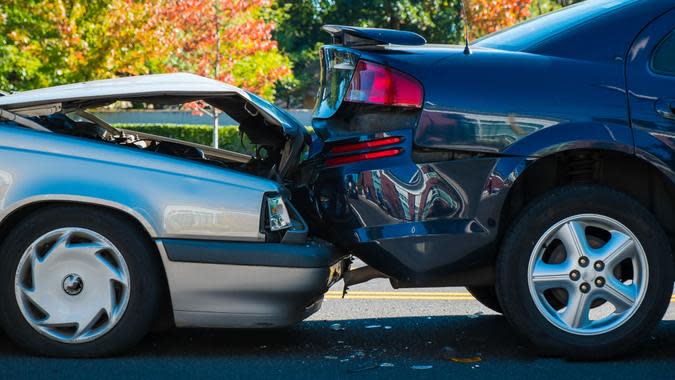
1. Accidents
There are about 6 million car accidents every year in the U.S. -- and no one plans for any of them. That's why they're called accidents. If the accident is the other driver's fault, their insurance will cover any damage to your car. If it's your fault and you have collision insurance (as opposed to just legally required liability insurance), your provider will pay for the cost of repairs. You will, however, be responsible for your deductible, and if you're injured, medical treatment comes with big bills. If you're forced to miss work, you could take yet another hit in the form of lost income -- and if you don't have collision insurance, you foot the entire bill solo.
Take Our Poll: Do You Tip for Service?
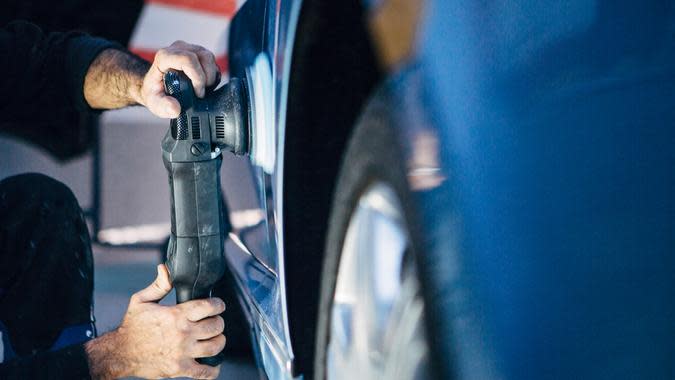
2. Increased Premiums
As previously stated, your insurance company will cover the cost of repairs for the other driver if you cause an accident -- and yours if you have collision coverage. Your insurer will pay, but they won't be happy. If you're at fault, it's all but guaranteed that you'll be hit with an increase in your monthly premiums.
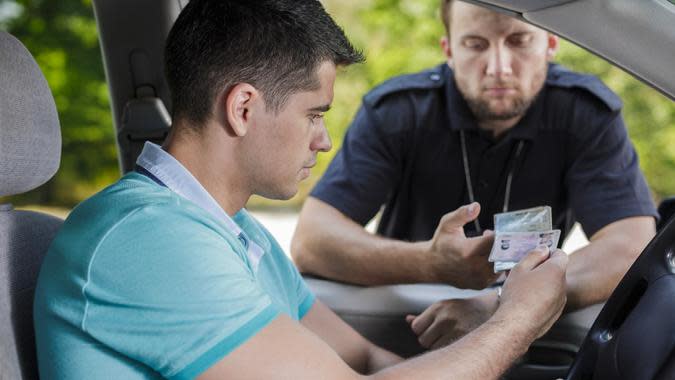
3. Traffic Tickets
According to Esurance, Americans pay $6 billion per year in speeding tickets alone. The average cost of a speeding ticket is $150, but depending on the circumstance and your record, that number can rise much higher and even into the four digits. Tickets aren't exactly inevitable, but with enough time on the road, receiving one is an unpleasant experience that even good drivers go through once in a while. If the ticket is serious or you start piling them up, your insurer will likely hike your premiums.

4. Parking Tickets
Those little pieces of paper under the windshield wipers of parked cars generate billions of dollars in state revenue -- and in some cities, parking signs seem to be almost intentionally confusing and enforcement agents almost manically zealous. They cost less than traffic tickets -- generally inside $50 -- but add-ons like late fees add up quickly and you might have to take off work to go to court if you intend to fight it.
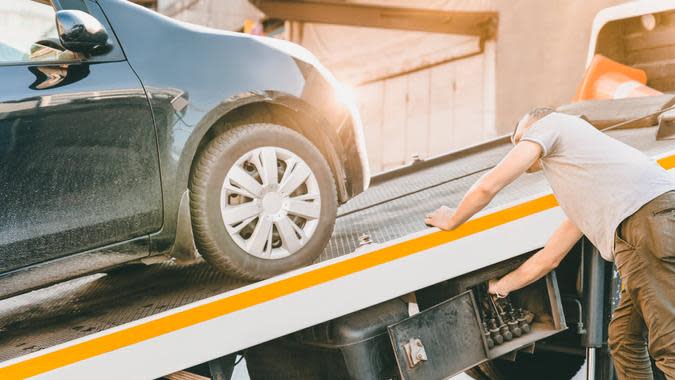
5. Getting Your Car Towed
Coming back to your spot to find a ticket on your windshield is upsetting. Coming back to find that it's been towed is downright daunting -- and for good reason. Cars are usually towed to remote locations and getting them back can be a chore -- and an expensive one, at that. Between towing fees, storage fees and other associated costs the industry is infamous for, recovering a towed car will certainly cost you hundreds, often into the high hundreds, or more.

6. Having Your Car Towed
In the case of a flat tire or mechanical breakdown, you might have to get your car towed on purpose. While it's not as expensive as recovering a towed vehicle, having your car towed is not free, either. If you're stranded and have to pay to have your car towed to a garage, you can expect to pay between $75-$125.

7. Roadside Service Plans
You can avoid the cost of roadside rescue and towing by buying into a roadside assistance plan to protect you in case of an emergency. The most famous is AAA, although there are plenty of options, including ones possibly through your own insurance company. It will cost you in the neighborhood of about $50-$70 a year for a basic plan, which buys you peace of mind in case you run out of gas, break down, lock yourself out, etc.
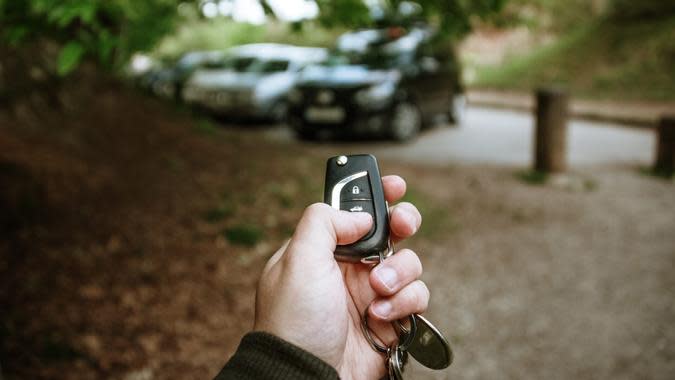
8. Replacing Your Keys
Losing your car keys was always an annoyance, but today it's often an annoyance that comes with a significant expense. Modern entry devices like fobs, transponder keys, laser-cut keys, switchblade keys and keyless entry remotes can cost hundreds of dollars -- close to $1,000 for some luxury cars -- to replace.
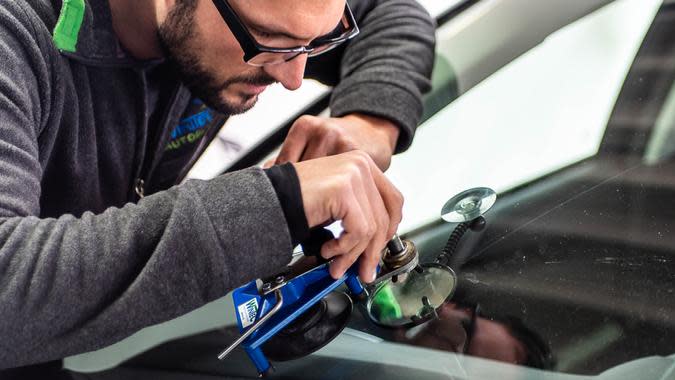
9. Replacing a Windshield
Even small cracks in windshields don't stay small for long. In some cases, a crack can be filled and repaired, a service that usually costs less than $100. More severe windshield damage, however, might require a full replacement. In that case, you can expect the cost of installing a new windshield to begin approaching the mid-hundreds.
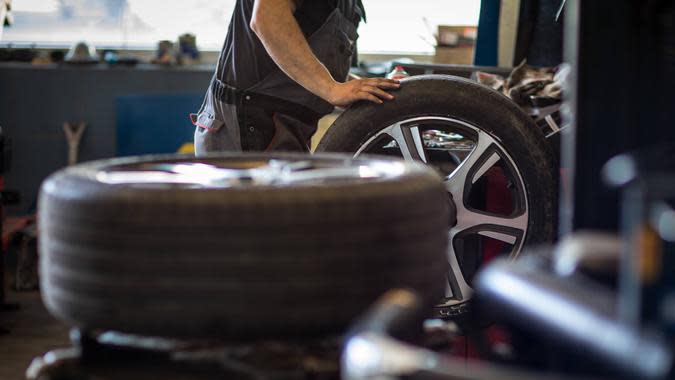
10. Replacing Tires
Old, worn tires are much more prone to blowouts and flats that can't be repaired. Even a brand new car on a test drive, however, is not immune to irreparable damage from potholes, curb impact, nails, glass and other debris. Moderately priced standard all-weather tires will generally run you from $100-$300 -- each.

11. Depreciation
You're going to lose money on your car even if nothing goes wrong. It's called depreciation, and if you plan to sell an old car to pay for a down payment on a new one, expect to be underwhelmed. Depreciation affects every model and type of car differently, but all cars lose value quickly and perpetually, especially in the beginning. On average, a new car loses 10% of its value as soon as you drive it off the lot. By the end of the first year, it will have lost 20% of its value and 15% every year after that until it's worth 60% less than you paid for it five years out.
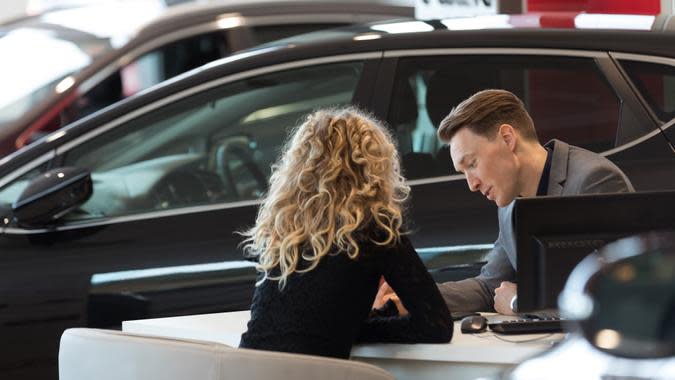
12. Fees
When you buy a new car, you have to factor fees into your budget. Dealers have been known to try to tack on extra fees that you can and should contest. Other fees, however, are mandatory, and although they vary by state, there's no getting around them. They include registration fees, taxes, title, emissions testing fees and delivery charges.
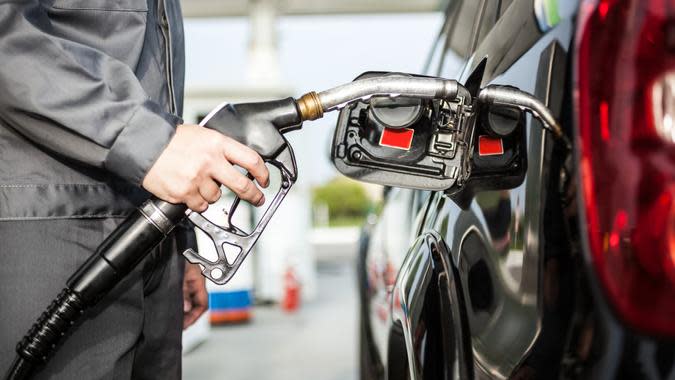
13. A Spike in Gas Prices
Presuming you don't drive an electric vehicle, gas station stops are a part of life for every driver. It's important to keep in mind, however, that the price at the pump when you buy your car is not locked in. A huge number of factors influence the price of fuel, and the cost per gallon can spike by more than $1 in a single year, making your car suddenly feel more expensive.

14. Vandalism
Few things are more infuriating than auto vandalism, especially when you realize that the cost of fixing a broken window or keyed paint will land on you if you don't have comprehensive auto insurance. If you stick with only the basic liability insurance your state requires, you pick up the tab for the reckless instincts of vandals.
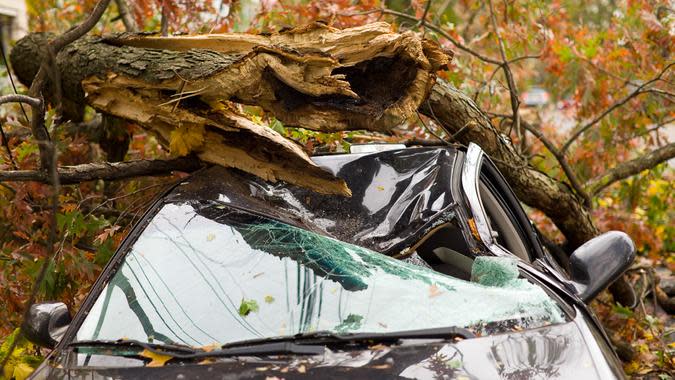
15. Mother Nature
Wind, hail, falling branches and even animals damage cars all the time. The people who drive those cars have to pay to fix that damage, just as they would if it were caused by vandals. Here, too, the solution is comprehensive coverage. You're either going to pay for supplemental coverage a little at a time or you're going to pay a lot all at once when Mother Nature decides your car has had it too easy.
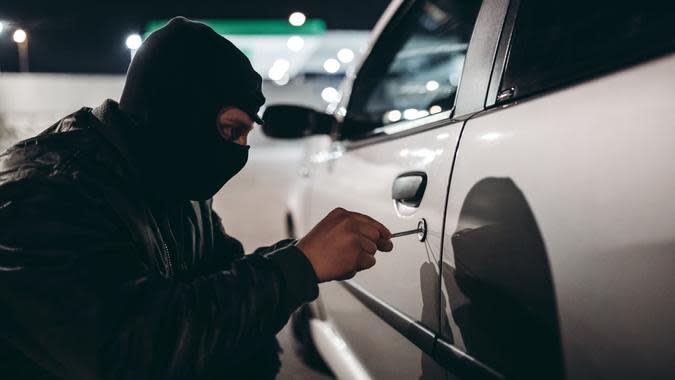
16. Theft
Worse than even vandalism or a tree limb through the windshield is auto theft. About three-quarters of a million cars are stolen every year in the United States. Here, too, you're naked without comprehensive insurance coverage. Neither legally mandated liability insurance or collision insurance covers theft.

How To Prepare For These Costs Now
The time to start thinking about how you're going to pay for the costs associated with owning a car is not when it's time to come up with the money. As with anything, the best way to mitigate negative surprises is to plan, strategize and budget ahead of time.
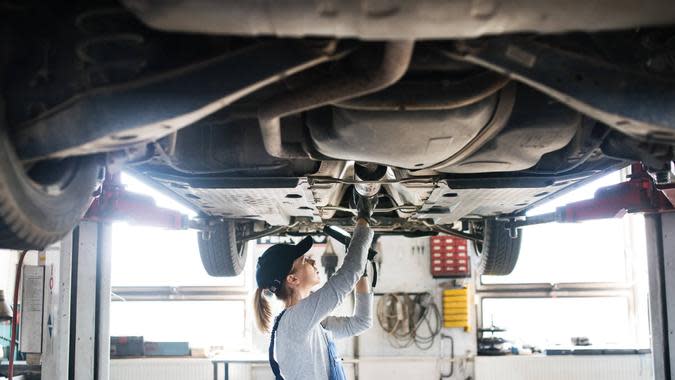
1. Open a Dedicated Savings Account
The average family with two vehicles spends $817 a year on car repairs, according to Liberty Mutual. The best way to come up with that cash when the inevitable happens is to have it on hand by saving it incrementally over time. That, of course, is easier said than done -- $68 a month, presuming two cars, is beyond the reach of many household budgets. If you can't afford to own the car, however, you can't afford to buy it. If you're not sure how you'll pay for ownership costs, buy a cheaper car.
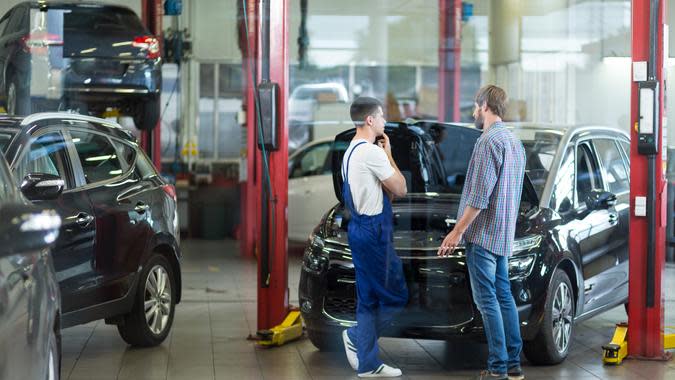
2. Keep a Credit Card Open
Financing emergency expenditures on credit cards with interest rates above 15% is not advisable, but as a near-last resort, it can buy you some time. You might consider applying for a credit card specific to auto repairs, which offer perks like free tire rotations, rebates and other offers. Keep in mind, however, that they tend to come with high interest rates. For example, the Goodyear credit card currently has a variable annual percentage rate of 28.49%.

3. Buy a Reliable Car
Organizations like J.D. Power and Consumer Reports publish comprehensive data and ratings based on the dependability of vehicles of every major make, model and category. They deal with factors like resale value, reliability and common trouble areas. Reliable cars cost less to own. Consider shopping among their suggestions for whatever kind of vehicle you're considering buying.
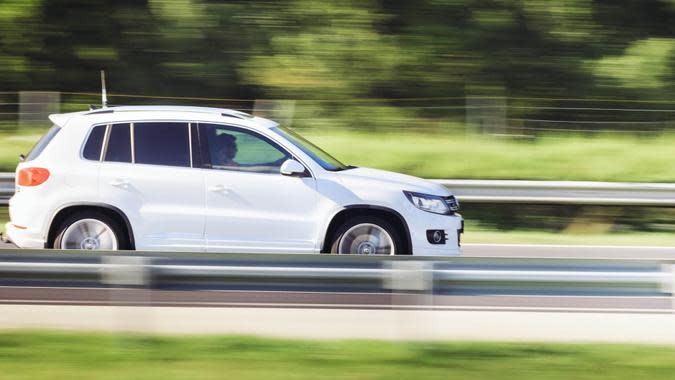
4. Buy a Car With Low Ownership Costs
Kelley Blue Book (KBB), Edmunds and others provide data and calculator tools that reveal the average cost of owning a car over time. They deal with things like purchase price, fuel economy and the average cost, frequency and severity of repairs. When you've decided on the type, size and category of vehicle you need, find one that ranks high in terms of both reliability and cost of ownership.

5. Learn How To Do Basic Maintenance Yourself
Get to know your car and its basic system and functions. Learn to DIY the things you're able to do yourself, like changing your own fluids and filters and testing your own coolant and battery. Learn about the different sounds cars make when something is wrong and brush up on your manual. The more you know about your car and the more you can do yourself, the better care you'll take of it and the less you'll spend on owning it.

6. Find a Reputable Mechanic
Don't wait until you're in an emergency situation to leave yourself scrambling to find a mechanic. There's always the dealership, but for people on a budget, local mechanics are almost always cheaper. Plus, you can establish a relationship with the actual person who will be working on a car. You don't need repairs now, which makes it the perfect time to start reading reviews and visiting websites for local mechanics near you. This way, you'll know who to call when something does go wrong.

7. Consider an Insurance Upgrade
It's likely that your lender requires you to get collision insurance, comprehensive or both as part of your financing obligations, but neither is required by law. Comprehensive coverage takes care of almost everything beyond damage resulting from a collision and it's generally much cheaper than collision or liability insurance. If you go with only the minimum, you're on your own financially.

8. Consider Renting Your Car Out
Your car is going to cost you, but you can also make it pay. Peer-to-peer ride-sharing sites like Turo do for car rental what Airbnb does for hotels. You can list your vehicle as available for sharing and earn an average of $706 a month, according to Turo. That's more than enough for a dedicated repairs savings account and then some.
More From GOBankingRates
This article originally appeared on GOBankingRates.com: 16 Unexpected Car Costs and How To Prepare For Them Now

 Yahoo Movies
Yahoo Movies 